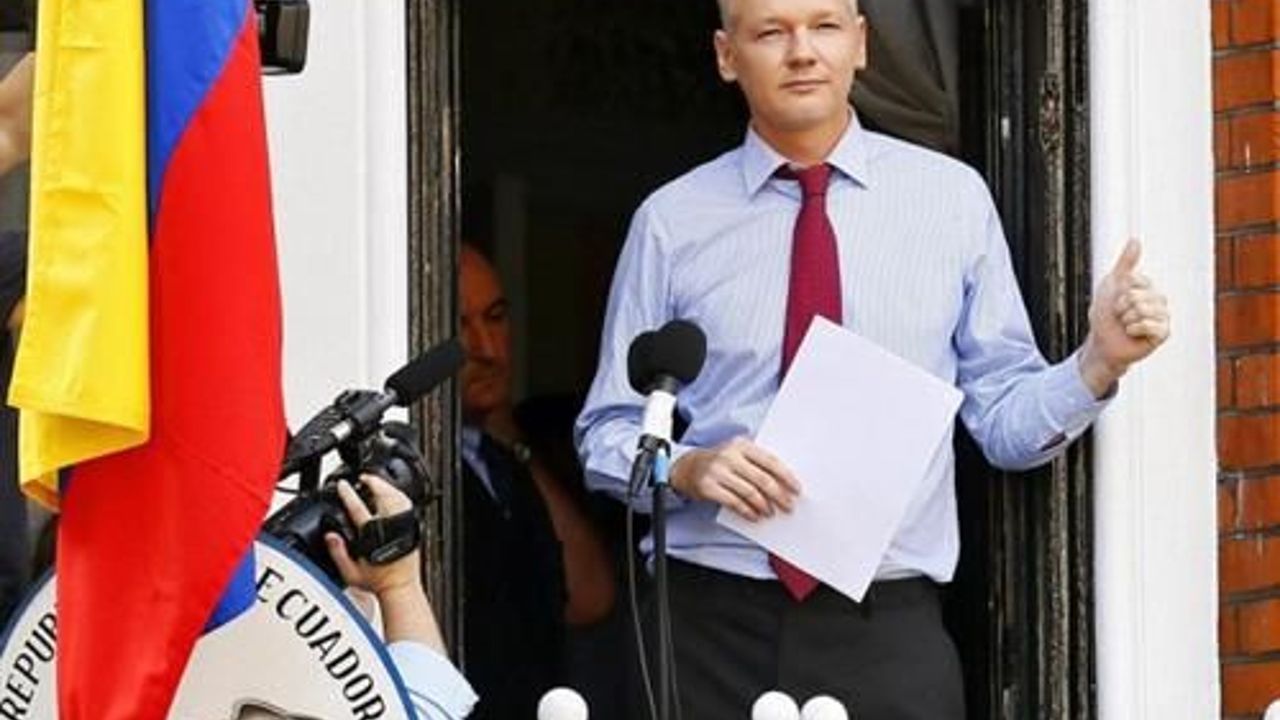Assange ready to help Germany's NSA inquiry
World |
WikiLeaks founder says he would meet investigating committee in London

Font Size:
WikiLeaks founder Julian Assange has offered help to Germany investigate alleged U.S. spying on German politicians and officials, local media reported on Saturday.
In an interview with weekly magazine Der Spiegel, Assange said he was willing to meet the German parliamentarians investigating spying by the U.S. National Security Agency (NSA) in London, where he has been living in the Ecuadorian embassy for the last three years to avoid extradition to Sweden to face rape allegations.
If the lawmakers need a witness, I would be very happy to receive them here and respond to their questions, Assange said.
According to alleged classified documents released by WikiLeaks early this month, the NSA systematically monitored Chancellor Angela Merkel, senior politicians and officials.
WikiLeaks also published top secret NSA reports from 2009 and 2011 based on intercepts of Merkel's calls, including discussions on the Greek debt crisis and Irans nuclear development.
We have documents which prove the monitoring targeted German politicians, including the chancellor and the foreign minister, Assange told Der Spiegel.
The list of 56 telephone numbers we released recently, telephone numbers which belong to the close circle of Merkel, is an example of these documents. We cannot disclose our sources, but we can tell them why we believe that these documents are authentic.
American whistleblower Edward Snowdens revelations in 2013 showed that Merkels private mobile phone had been on a NSA monitoring list, straining relations between the NATO allies.
Last year, Attorney General Harald Range opened an investigation into the claims but it was shelved last month due to a lack of evidence.
Earlier this month, France declined to give Assange asylum on the grounds that he was not in danger and was the subject of a European arrest warrant.
Anadolu Agency
In an interview with weekly magazine Der Spiegel, Assange said he was willing to meet the German parliamentarians investigating spying by the U.S. National Security Agency (NSA) in London, where he has been living in the Ecuadorian embassy for the last three years to avoid extradition to Sweden to face rape allegations.
If the lawmakers need a witness, I would be very happy to receive them here and respond to their questions, Assange said.
According to alleged classified documents released by WikiLeaks early this month, the NSA systematically monitored Chancellor Angela Merkel, senior politicians and officials.
WikiLeaks also published top secret NSA reports from 2009 and 2011 based on intercepts of Merkel's calls, including discussions on the Greek debt crisis and Irans nuclear development.
We have documents which prove the monitoring targeted German politicians, including the chancellor and the foreign minister, Assange told Der Spiegel.
The list of 56 telephone numbers we released recently, telephone numbers which belong to the close circle of Merkel, is an example of these documents. We cannot disclose our sources, but we can tell them why we believe that these documents are authentic.
American whistleblower Edward Snowdens revelations in 2013 showed that Merkels private mobile phone had been on a NSA monitoring list, straining relations between the NATO allies.
Last year, Attorney General Harald Range opened an investigation into the claims but it was shelved last month due to a lack of evidence.
Earlier this month, France declined to give Assange asylum on the grounds that he was not in danger and was the subject of a European arrest warrant.
Anadolu Agency
Similar News
Video News

WORLD
26 Mart 2024 - 11:18
Photo News






